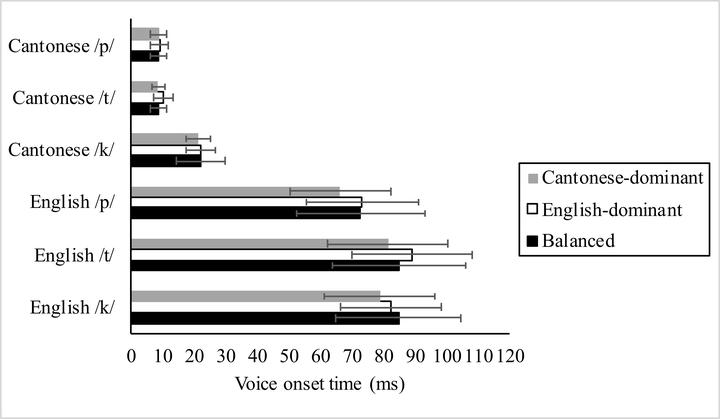Impact of language dominance on phonetic transfer in Cantonese–English bilingual language switching

Abstract
Bilinguals are susceptible to interaction between their two phonetic systems during speech processing. Using a language-switching paradigm, this study investigated differences in phonetic transfer of Cantonese–English bilingual adults with various language dominance profiles (Cantonese-dominant, English-dominant, and balanced bilinguals). Measurements of voice onset time revealed that unbalanced bilinguals and balanced bilinguals responded differently to language switching. Among unbalanced bilinguals, production of the dominant language shifted toward the nondominant language, with no effect in the opposite direction. However, balanced bilinguals’ speech production was unaffected by language switching. These results are analogous to the inhibitory control model, suggesting an asymmetrical switch cost of language switching at the phonetic level of speech production in unbalanced bilinguals. In contrast, the absence of switch cost in balanced bilinguals implies differences in the mechanism underlying balanced bilinguals’ and unbalanced bilinguals’ speech production.